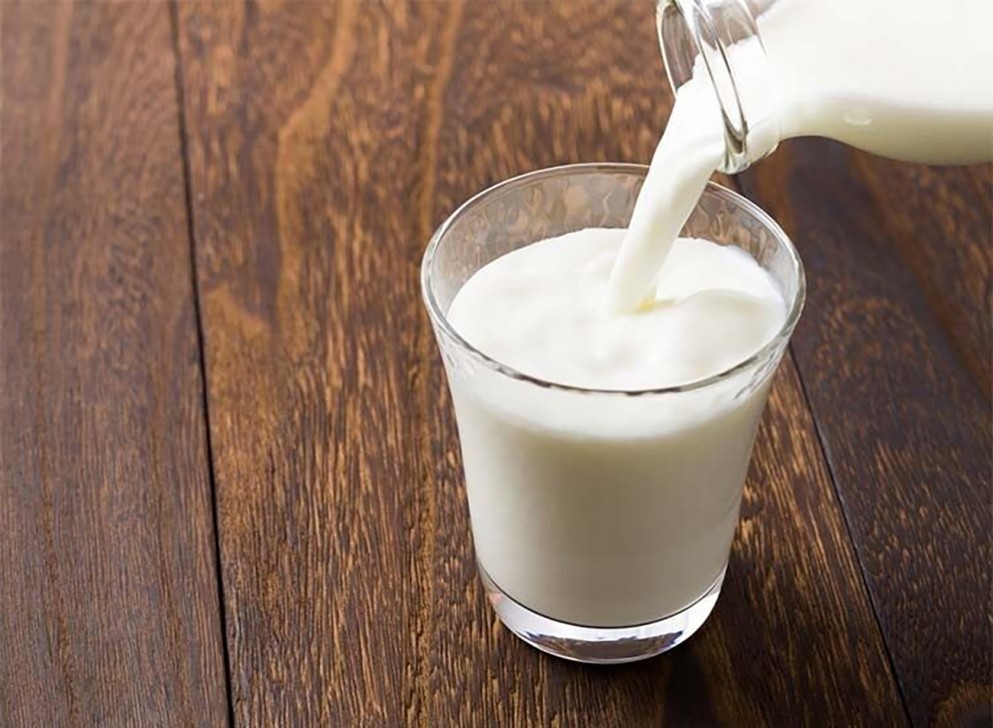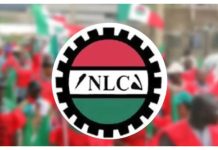A recent directive by President Muhammadu Buhari, to the Central Bank of Nigeria (CBN) to stop providing foreign exchange for the importation of food into the country turned out to be one of the most contentious comments credited to him in this second term.
As expected, reactions from Nigerians across diverse interest groups have continued to trail that pronouncement.
But Buhari, who gave the directive when he hosted All Progressives Congress (APC) governors to the 2019 Eid-el-Kabir lunch at his country home in Daura, Katsina State, explained the intention was to achieve steady improvement in agricultural production, and attainment of full food security, after the government said it had expended close to N100billion under the Anchor Borrowers Programme, so far to achieve national self-sufficiency in targeted food crops.
According to a statement, by his Senior Special Assistant on Media and Publicity, Garba Shehu, Nigeria’s helmsman believes that restricting official foreign exchange window to only essential imports that have no local alternatives would help conserve the nation’s lean reserves thereby utilising same strictly for diversification of the economy, to stop dependence on foreign food imports.
“Don’t give a cent to anybody to import food into the country,” Buhari had directed.
Indeed, the president who spoke with the benefits of hindsight obviously had reasons to justify issuing a directive, which some commentators said bordered on executive meddlesome on a matter that bordered on the preserve of the nation’s monetary authority, when he cited states like Kebbi, Ogun, Lagos, Jigawa, Ebonyi and Kano, as having already taken advantage of the Federal government’s policy on agriculture with their huge returns from rice farming.
He then urged more states to key into his agricultural revolution to feed the nation.
“We have achieved food security, and for physical security we are not doing badly,” he said.
Buhari said he was particularly delighted that young Nigerians, including graduates, have started exploring agri-business and entrepreneurship, with many posting testimonies of good returns on their investments.
But since that presidential directive, Nigerian economic experts have been commenting on the import of the impending forex curb on food importation.
For instance, Professor Pat Utomi, a political economist believes the president’s initiative is laudable as he noted it held the prospect of boosting the development of the local food industry and assisting government to halt a possible slide into another economic recession. “I don’t have anything against it as it is important there should always be a policy for local industrialisation,” said Utomi.
Perhaps his only fear was that food production has been made more difficult in recent years by rising insecurity across the country with many farmers unable to go to their farms, warning the policy may lead to severe food shortages if not properly articulated.
Utomi further advised that any policy to curtail food imports should be weighed against the country’s comparative advantage, especially the capacity to produce such foods in sufficient quantity for the local market.
Although the Managing Director of Financial Derivatives Limited, Mr. Bismarck Rewane, thinks the forex ban on food was not a fundamental issue given that similar policies in the past, failed to yield the desired results with some of the products still being smuggled into the country, he urged the government to strengthen border controls to ensure that Customs and smugglers do not continue to benefit at the expense of the nation.
For his part, the Director-General of the Manufacturers Association of Nigeria, (MAN) Mr Segun Ajayi-Kadir, said MAN would actively support resource-based industrialisation, and its stance had always been on improving local sourcing of raw materials and developing sustainable value chains.
He said the association believes that value addition to products creates more jobs and wealth for the nation.
But beyond the reality of the divergent views expressed above, many Nigerians are of the opinion that the Anchor Borrowers Programme launched by the Buhari administration on November 17, 2015 has indeed created substantial linkage between anchor companies involved in the processing and smallholder farmers (SHFs) of the focused key agricultural commodities, against the backdrop the expect similar interventions in other critical sectors like the milk and protein sub sector.
Going by recent figures reeled out by immediate past Minister of Agriculture and Rural Development, Chief Audu Ogbeh, Nigeria spends a whopping $1.2billion annually on milk import, with its yearly national dairy output and demand estimated at 700,000 metric tonnes and 1,300 metric tonnes, leaves a supply gap of about 600,000 metric tonnes.
Ogbeh said an average cow in Nigeria produces less that one litre of milk per day, compared to other countries where a cow could produce 100 litres per day blaming the deficiency on the practice of moving cows from place to place.
Just as the Nigerian apex bank had in line with its developmental functions established the Anchor Borrowers’ Program (ABP) to help provide farm inputs in kind and cash (for farm labour) to smallholder farmers to boost production of these commodities, stabilise inputs supply to agro-processors and address the country’s negative balance of payments on food, it is also targeting to replicate such programmes in the milk and protein sector.
Some of the focused commodities include rice, maize, wheat cotton, cassava, potatoes, yam, ginger, sugarcane, oil palm, cocoa, rubber, soybean, sesame seed, cowpea tomato, fish, poultry, among others. Commenting on the impact of ABP recently, the CBN Director, Corporate Communications Department, Isaac Okoroafor, said in 2018, N36.37 billion was disbursed to 155,732 farmers, while N12.57 billion was paid to 27 farmers in the first half of 2017, bringing total disbursements to N91.90 billion from inception.
He hinted that over 412,037 smallholder farmers have benefited in 36 states and the Federal Capital Territory (FCT), with the programme create over 500,000 jobs and added over two million tonnes of rice to domestic rice supply.
Okoroafor further stated that the volume of rice importation into the country drastically reduced in 2018 judging by figures obtained from various official sources. “Figures obtained from India and Thailand, which are dominant rice exporters to Nigeria indicated that as at September 2018, Thailand exported about 5,161 tonnes of rice to Nigeria, while India exported only a paltry 426 tonnes to Nigeria as at July 2018, “pointing out that CBN had not allocated any foreign exchange for the importation of rice
However, having realised that CBN meant business with respect to the implementation of its foreign exchange restriction on 41 items adopted in 2015, stakeholders in the milk and protein subsector are now beginning to change their orientation towards developing Nigeria’s local dairy industry, knowing that doing so would have immense multiplier effect on both the economy and rural cattle breaders.
It is regrettable that the continued importation of milk and dairy products from Europe and other countries has impoverished local farmers while sustaining jobs overseas hence the need to wean themselves of such parasitic disposition to meet the nation’s demand locally. Many have wondered why it is only in Nigeria that milk importation could continue unabated for more than 60 years after the first milk company opened for business in the country despite the huge ranching opportunities that abound across the 36 states.
It was in a bid to achieve this dream that the governor of the Central Bank of Nigeria Godwin Emefiele, recently extended an olive branch to both rural milk producers, local cattle rearers and manufacturers to jointly participate in domesticating a national milk project that will help meet Nigeria’s dairy needs using local breeders.
It was therefore not surprising that Danish dairy firm, Arla Foods recently signed a Memorandum of Understanding with the Kaduna State Government to establish a dairy development programme. The scheme would involve 1,000 families of herdsmen with 12,000 heads of cattle with an overall objective of developing the dairy sector.
Under the MoU, herdsmen will get permanent farmland with access to water from the state and federal governments, as well as veterinary and schools for the children of the 1,000 families who will generally live as a small community, while Arla as the commercial partner, would buy the milk, collect, process and bring it to market.
Speaking on the partnership, Nasir el-Rufai, Kaduna State Governor, said: “We are pleased to collaborate with Arla Foods to grow and further improve our nation’s dairy industry. With our different competencies, together we can empower local farmers and promote market-driven sustainable dairy development in Nigeria”.
The project will primarily be funded by loans provided by the Central Bank of Nigeria (CBN) and guaranteed by the local state. As a commercial partner, Arla will invest in establishing milk collection centres. These will be pivotal to Arla’s role as a processor of the milk produced by the farmers.
This new public-private partnership builds on the success of a collaboration initiated in 2016 with Kaduna state, the Federal Government, Arla and a number of NGOs including Care, the Danish Agricultural and Food Council, the local dairy cooperative MILCOPAL and the Nigerian pastoralist organisation Coret.
The partnership and project have demonstrated a viable scalable business model that has created both an increase in income and job opportunities for local farmers and employees in the dairy sector.
Also speaking, Steen Hadsbjerg, vice president, sub-Saharan Africa region for Arla Foods, said the partnership will build Nigeria’s dairy sector and “achieve Arla’s ambitions in West Africa”.
This project has great potential to develop the local dairy sector and make a real difference in many farmers’ businesses and lives” said Jesper Kamp, Danish Ambassador to Nigeria.
In the same vein, FrieslandCampina WAMCo said it is also working on partnership with various private sector stakeholders to build an indigenous dairy industry in the country.
The Netherlands’ Minister for Foreign Trade and Development Cooperation, H.E. Mrs. Sigrid Kaag affirmed that given the consistent result FrieslandCampina WAMCO has recorded in local milk sourcing, Nigeria has the right partner to stimulate growth in the industry.
She confirmed the progress of FrieslandCampina WAMCO’s Dairy Development Programme (DDP) and observed the integration of sustainability initiatives throughout the company’s operations and the DDP in particular.
In her words, “I see FrieslandCampina WAMCO runs a stellar operation; you have changed the status quo in local milk sourcing and are playing a key role as a private sector partner in achieving the SDGs.”
The Minister witnessed the signing of the partnership extension agreement on the Dairy Development Programme between FrieslandCampina WAMCO Nigeria PLC, represented by Mr. Ben Langat, Managing Director, and International Fertilizer Development Centre (IFDC) represented by Mr. Albin Hubscher, President and CEO.
It is in the light of these partnerships that some have argued that integrating the RUGA settlement policy into this scheme could help Nigeria also become independent on milk and protein products production.
Although RUGA has been met with considerable resistance from Nigerians, no one can deny its potential to help Nigeria become self sufficient in dairy production as there can be no milk without cattle.
The Benue State government and several notable Southern and Middle Belt socio-political groups have completely condemned the plan and called for it to be scrapped
The settlements will house herders and animal farmers and make milk collection easier.
According to Permanent Secretary of the Federal Ministry of Agriculture and Rural Development, Mohammed Umar, the settlements will house nomadic herdsmen who breed animals.
The presidency disclosed that animal farmers, not just cattle herders, will be settled in RUGA settlements with provision of necessary and adequate basic amenities such as schools, hospitals, road networks, vet clinics, markets and manufacturing entities that will process and add value to meats and animal products.
The Buhari administration believes RUGA settlements will be of benefit to everyone
He said the provision of cattle markets will mark the end of herdsmen having to transport their herds mostly by foot and avoid conflict with local farming communities
Umar estimated that each RUGA settlement will provide at least 2,000 jobs and will be a major attraction for foreign investors.
“The RUGA settlement will attract a lot of investments to Nigeria and it is our belief that in the next five years, each RUGA settlement will provide nothing less than 2,000 employment opportunities,” he said.
“The overall benefit to the nation includes a drastic reduction in conflicts between herders and farmers, a boost in animal protection complete with a value chain that will increase the quality and hygiene of livestock in terms of beef and milk production, increased quality of feeding and access to animal care and private sector participation in commercial pasture production by way of investments.
“Other gains are job creation, access to credit facilities, security for pastoral families and curtailment of cattle rustling,” the presidency said.
The government said the settlements which would be implemented on voluntary basis RUGA settlements have already started springing up with at least 12 states that have reportedly shown interest designated as pilot states. They include Sokoto, Adamawa, Nasarawa, Kaduna, Kogi, Taraba, Katsina, Plateau, Kebbi, Zamfara and Niger.
According to Umar, each state will have at least six locations where nomadic herders will be settled alongside others interested in rearing animals.
“Already state and local governments are buying into the initiative. Many states have indicated interest. They have been coming to the ministry and will like to join to ensure that we set up RUGA settlements in their states so that their nomads will have a place. Also, they will have cattle markets and modern abattoirs in their states,” he said.
Benue State had initially been listed as an interested pilot state, but Governor Samuel Ortom publicly denounced RUGA settlements after the Federal Government appeared to ignore its objections and tried to implement the plan in the state.
The plan, presented by the National Economic Council (NEC) in June 2018, recommends that cattle herders are expected to be registered with cooperatives for the purpose of the ranching scheme.
These cooperatives will then be able to get rental agreements for land from state governments and also benefit from ranch resources on several terms including loans,
“The States are Adamawa, Benue, Kaduna, Plateau, Nasarawa, Taraba, Zamfara, Katsina, Kano, Kogi, Kwara, Ondo, and Edo.
Umar also revealed that cattle herders that hope to benefit from RUGA settlements are expected to be registered with cooperatives for the purpose of the ranching scheme.
It is only the cooperatives that will then be able to get rental agreements for land from state governments and also benefit from ranch resources on several terms.
RUGA is voluntary and can’t be imposed on states and the government had since acknowledged that fact which explains the CBN believes it would be willing to support states and stakeholders who enlist to participate in the RUGA project just as it did with the Anchor Borrowers Programme.
The government said it has no plan to impose the idea on any state since it is as a voluntary concept conceived to end protracted conflicts among herders and locals and simultaneously put paid to the threat of deprivation and loss of people’s freedom.
According to the statement, 12 states have so far applied to the Federal Ministry of Agriculture for participation in the programme, adding that the number is enough for the pilot phase of the project.
So far, 12 states have applied to the Federal Ministry of Agriculture, making lands available for the take-off of the scheme in their states. This number is sufficient for the pilot scheme.







